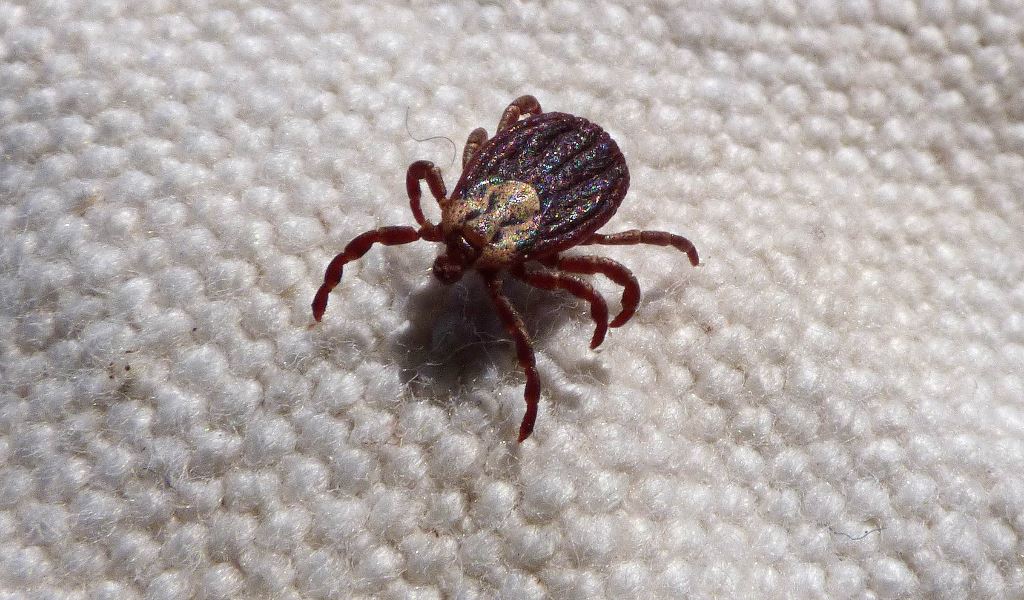Ticks are a North Carolina nuisance. While usually, they are no more than an annoyance, their ability to spread diseases like Lyme disease can make them dangerous to people and pets alike.
WHAT TICKS LOOK LIKE
Ticks are small insects, with adult ticks measuring around ⅛ of an inch in length, and nymphs around half that size at roughly 1/16 of an inch. This makes them hard to identify in the wild, but a few key characteristics to look for are:
- The aforementioned smallness.
- Flat and ovular in shape.
- Have 8 legs.
- Brown, orange-brown, reddish-brown, in color, when not engorged.
- Gray, brown, or bluish-gray when engorged.

TYPES OF TICKS IN NORTH CAROLINA
North Carolina is home to 4 common types of ticks:
- American dog ticks
- Brown dog ticks
- Blacklegged ticks
- Lone Star ticks
Each of these types of ticks is capable of spreading disease to people and pets.
WHERE TICKS LIVE
Ticks are most comfortable in wooded or grassy areas, where they can perch high up and launch themselves at an animal that they can feed on. In your yard, you can commonly find ticks in the following places:
- Amongst tall grass
- In piles of leaves
- In areas with dense brush
- Around trash
- Near fences
HOW LONG DO TICKS LIVE?
You may think that ticks need a host to survive, but the fact of the matter is that adult ticks can actually live for hundreds of days without a host. The lifespan of a tick can be anywhere from 3 months to 3 years, which means that a tick problem can go on for some time -- especially in the warmer months.
HOW TO PREVENT TICKS
There are a few things that you can do to cut down on the chances that you encounter a tick presence on your property:
- Clear up yard clutter. Piles of leaves, brush, and tall grass is the perfect hiding places for ticks, so clearing those out will give them fewer appealing places on your property.
- Ticks make their way onto properties by riding in on the bodies of their animal hosts. If you have a garden, try to limit the number of plants that attract wildlife, and keep your property well maintained to keep animals away.
- Equip your pets with tick protection. Outdoor pets are the most likely member of a household to carry ticks indoors because they are not usually shy about rustling about in areas where ticks are common. Use tick collars and/or tick sprays as your veterinarian sees fit.
- Regularly check around your property for areas that ticks like to hide.
- Contact a professional tick control company. Even the most careful precautions might not be enough to eliminate a tick presence, and that’s where we come into the picture.
CITY WIDE EXTERMINATING TICK CONTROL
At City Wide Exterminating, we know Charlotte, North Carolina ticks. Whether you’re looking for year-round pest protection or just a one-time treatment, we have you covered. Through careful inspection and collaboration with you, we create a tick control plan that works for you. Once our plan is implemented, your tick problem will be a thing of the past. Just get in touch with us with any questions you may have, or to book an appointment!

